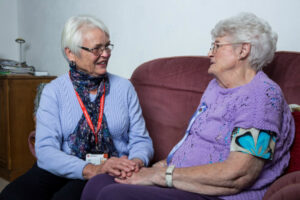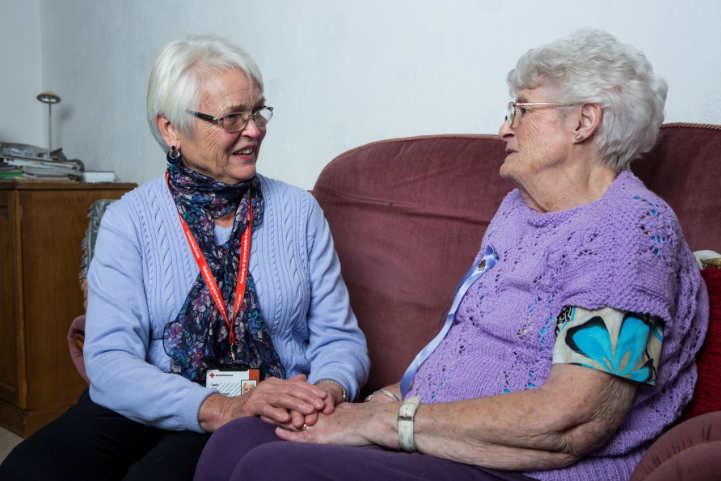Out of necessity, most of us isolated from one another over the past year to avoid a potentially deadly virus. We’ve come to realize how difficult isolating from family, friends and associates can be. Sadly, many older people have had plenty of practice with social isolation well before COVID-19 entered our midst.
As individuals age, loneliness is a risk factor for physical and mental decline. Research shows social isolation can contribute to a shorter lifespan and a 40 percent increased risk for dementia, according to a 2018 study.

Living alone with little external stimulation can cause older adults to forgo physical activity and add to feelings of anxiety and depression. Years of loneliness can prove exhausting, especially for those dealing with chronic illness or injury who may be struggling just to get through the day.
“We lose some of our strength as we age,” shares James Falvey, executive director of the Minneapolis chapter of Little Brothers—Friends of the Elderly, a nonprofit group that pairs volunteers with lonely seniors. “Not just physical strength, but emotional strength.”
Cultivating friendships can be difficult as we age and may bring about feelings of inadequacy and self-doubt. Most individuals don’t want to appear needy or that they have little to offer in social situations. Some may believe their conversational skills have atrophied from lack of use. Others may cling to grievances or make declarative statements, such as “I have no use for those people,” which can cut people off from them. A negative attitude or harsh words can make it difficult to be around someone and not take their actions personally.
So, what can be done to help conquer loneliness? Prevention and taking decisive actions are a main mantra for success. Here are a few suggestions for starters:
- Devise a plan to resist the pull of isolation and realize that if you don’t do anything—if you wait around for others to contact you—you’re likely to perpetuate the status quo;
- Identify pathways to make new friendships, such as taking part in community or faith-based activities, attending events at the local library, community center, or public input sessions at city council meetings, as a connection to meeting new people;
- If you’re homebound, implement a creative “social engagement” strategy, such as reaching out to neighbors and inviting them over to become a friend;
- Join a gym – even if you barely work out – as a setting to see familiar faces and talk about fitness;
- Volunteer at your local school or community center, even if only for an hour a week, which can lead to chance encounters that can blossom into friendships; and
- Telephone family, friends and acquaintances and show interest in their activities by asking questions and being willing to listen without judgment so they’ll be more inclined to reciprocate and be willing to reach out and get closer to you.
Admitting loneliness takes courage but is perhaps the most important step in developing lifestyle changes and finding ways to address the issue. Taking proactive steps engages the brain and raises the odds of tending to one’s own personal needs—such as good hygiene, following prescribed medications and enjoying a more robust and productive lifestyle.




